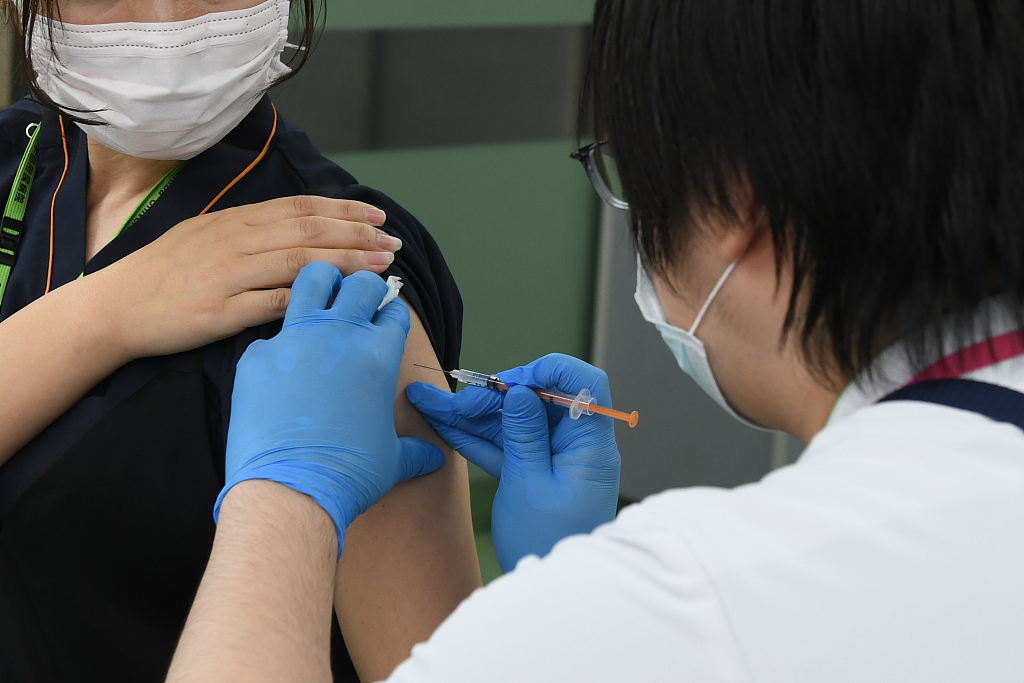
A healthcare worker administers a booster shot of the Pfizer-BioNTech COVID-19 vaccine at Chiba University Hospital in Chiba, Japan, November 30, 2021. (Photo: CFP)
As scientists race to understand the full consequences of Omicron, the highly transmissible variant from the virus that caused COVID-19, infectious disease specialist and pharmaceutical companies anticipate periodic booster shots with updated strain antigens to be the norm in the next few years.
Jonathan Abraham, assistant professor of microbiology in the Blavatnik Institute at Harvard Medical School, said that periodic boosters for the next few years is a need, considering the highly transmissible variants and low vaccination uptake when discussed about the science and history of vaccine boosters with the Harvard Gazette last month.
"In areas with high-infection rates due to low vaccination uptake, vaccinated people are more likely to be exposed to the virus and get a breakthrough infection," said Abraham. "With this in mind, I would speculate that because of highly transmissible variants, we will need periodic boosters for the next few years," he said.
Similar to the seasonal influenza (flu) vaccine provided to people each year, "a booster with an updated strain antigen would be required to prime the immune system to recognize the mutant virus," Abraham said. "Although we think more of flu vaccines as strain-matched vaccines as opposed to periodic boosters."
According to the U.S. Centers for Disease Control and Prevention (CDC), the influenza vaccine composition is reviewed each year and updated as needed based on which influenza viruses are making people sick, the extent to which those viruses are spreading, and how well the previous season's vaccine protects against those viruses.
Still, the spread of the Omicron variant has prompted fears it could significantly undermine the effectiveness of current vaccines against COVID-19.
When addressing the concerns about the developed vaccine against the Omicron variant in a Reuters interview on Tuesday, BioNTech CEO Ugur Sahin reaffirmed his view that the new variant might infect vaccinated people, but existing vaccine would likely offer protection to prevent the need for hospital care.
"We anticipate that infected people who have been vaccinated will still be protected against severe disease," Sahin added. Given the constant mutations in the virus, "annual vaccinations would be the norm, as is the case with seasonal flu," he said.
"Vaccines remain extremely effective at preventing severe infection and death, but they are not 100 percent effective at stopping acquisition and transmission of the virus," said Abraham.
The World Health Organization (WHO) has urged countries around the world to focus on getting people inoculated with vaccines available on the market, WHO's emergencies director, Mike Ryan, said at a social media event for Reuters Next conference on Friday.
As for the need for annual vaccine boosters, WHO's chief scientist, Soumya Swaminathan, said on the conference that "the WHO is preparing for all scenarios," which could include an additional dose, particularly among some age groups or vulnerable sections of the population, or a modified vaccine.


